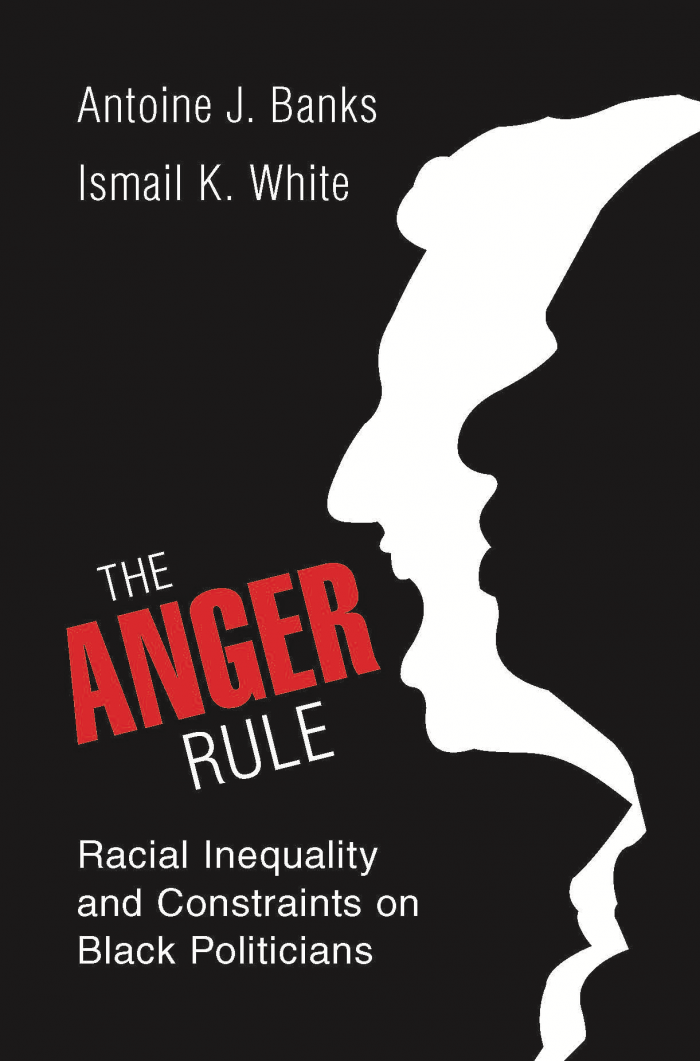The Inequality of Anger in Politics
GVPT Professor’s New Book Questions Whether Some Politicians Can Afford to be Angrier than Others
Anger can be a powerful tool in political settings, signaling to potential voters that a candidate is passionate and powerful, among other things.
But, is anger an equally effective tool for all politicians? According to Department of Government and Politics Chair Antoine Banks and Ismail White, a professor of politics and public affairs at Princeton University, the answer is “no.”
In their new book, The Anger Rule: Racial Inequality and Constraints on Black Politicians, Banks and White discuss a phenomenon known amongst political scientists as “the anger rule”; which is essentially that Black politicians are not permitted to express anger in the same way as their white counterparts.
“In society we think that all groups have the same access to express themselves,” said Banks. “Our book shows that there is a power differential in anger; racial minorities are constrained from being angry, and that has negative consequences for them politically in terms of mobilizing people to vote, and bestowing them status and power.”
Banks makes the connection between anger and whites’ attitudes toward racial and ethnic minorities in his first book, Anger and Racial Politics: The Emotional Foundation of Racial Attitudes in America. In that book, he discusses the emotion-induction experiments he led in The Department of Government and Politics Research Lab—experiments that asked participants to write about things that made them feel angry, like someone cutting in front of them in line, and then answer questions about whether they opposed or supported policies that would benefit those of another race. Ultimately, Banks found that when racially prejudiced white respondents were made angry, even about issues that had nothing to do with race, they were increasingly opposed to policies that they perceived to be supporting marginalized groups, like affirmative action and government aid to Black Americans.
“Anger and race are really fused in the brain for many white Americans,” said Banks. “So in a political environment, when you make them angry, it brings these attitudes to bear on public policy, and it really polarizes people who are sympathetic toward groups versus those who have these hostile views.”
To see whether Black politicians and voters are aware that expressing anger could hurt them more than it would white politicians and voters, in The Anger Rule, Banks and White compare the presidential speeches of former Democratic presidents Bill Clinton and Barack Obama, the floor speeches of Black and white members of the U.S. House of Representatives, and share the results of multiple different survey experiments of likely voters.
“What we found was that Clinton was generally more angry than Obama, even about issues affecting people of color, and so that was one way in which we show that there is evidence of anger being used as strength for some politicians,” explained Banks. “We also found that Black voters give Black politicians a pass for not being angry about things that they are clearly angry about, but in a very strategic way; they reward Black politicians for not being angry in areas where they know the politician needs white support, but they did not reward them for not being angry in a majority Black area.”
Despite acknowledging that leveraging anger seems to be an increasingly popular tactic in modern politics, the authors ultimately caution Black politicians from attempting to utilize it in certain electoral circumstances. That doesn’t mean the authors recommend that Black politicians and voters altogether ignore their anger, however.
“Anger has been able to thrive outside of electoral spaces, in places where Blacks have been more free to express themselves and challenge institutions,” said Banks. “We think it's important for these spaces to continue and thrive because it gives Blacks a space where anger is more likely to be received, supported, and nurtured and channeled for change in a healthy way.”
Order Your Copy of The Anger Rule
Published on Thu, Dec 19, 2024 - 4:04PM




